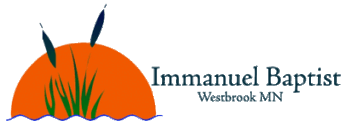11.17.21
The End of Wisdom and Pleasure
There is nothing better for a man, than that he should eat and drink, and that he should make his soul enjoy good in his labor. (Ecclesiastes 2:24a)
The Book of Ecclesiastes is truly puzzling; filled with inconsistent statements, ponderings and warnings. It is the journey of a man, King Solomon, and his effort to find meaning in life.
His first two areas of search included wisdom and pleasure. In both cases, while he found some joys along the way, he determined that neither of these things fully satisfies in an eternal sense. They leave one empty. They are full of wind.
Today we consider his evaluations of these two searchings before he goes on to other investigations.
What did Solomon find in his search for meaning in the wisdom of this world (12-17)? First, he recognized that he alone was in a position to search out fulfillment in the area of wisdom. With all of his resources, it would be futile for anyone else to try.
Second, he concluded that wisdom is better than folly, because at least one can gain some insight into life.
Third, death comes to all, the fool and the wise man. So, if the problem of death cannot be solved, it doesn’t matter if you are wise or foolish—everyone faces death. Wisdom requires much more effort than folly, but it brings in the end no more benefit. Life seems worthless.
What did Solomon find in his search for satisfaction in pleasure (18-23)? First, death is inevitable and impartial. It brings a person’s work to an end.
Second, no one can take his pleasures with him beyond the grave. The enjoyment of physical pleasures do not last very long.
Third, a person has no control over his possessions and the fruits of his labor after he dies. Solomon could doubtless show how his sons had squandered his wealth and works.
He then gave an exhortation regarding his failure to find meaning through wisdom and pleasure (24-26). There is nothing better for a man, than that he should eat and drink, and that he should make his soul enjoy good in his labor. This also I saw, that it was from the hand of God. For who can eat, or who else can hasten hereunto, more than I? For God gives to a man that is good in his sight wisdom, and knowledge, and joy: but to the sinner he gives travail, to gather and to heap up, that he may give to him that is good before God. This also is vanity and vexation of spirit.
As he scrutinized life under the sun, he became disappointed. However, at the end of this first round of observation he gave a ray of hope… he added God to the picture. Thus the faint image of a satisfying life begins to emerge.
We must seek happiness within the boundaries of God’s control over the world. As the Creator and Sustainer of life, God ultimately controls all human outcomes. Within that framework, we are required to work, study, and grow. We are to remember that we are made by Him, and that we live by virtue of His gracious oversight.
In the next section of the Book, Solomon continues his gloomy observations. However, after each investigation, he will end by saying, “Enjoy life and be thankful to God.” ibcwestbrook@woodstocktel.net
